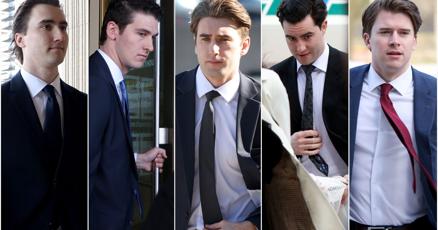The sexual assault case involving members of Canada’s 2018 World Junior hockey team took a dramatic turn this week as court documents revealed conflicting accounts between an alleged victim’s initial statements and her subsequent testimony. During cross-examination, the complainant acknowledged telling a friend after the incident that “it was all consensual,” a revelation that has intensified scrutiny around this high-profile case.
Documents filed in Ontario Superior Court show defense lawyers highlighting inconsistencies in the woman’s statements about the events that allegedly occurred in a London, Ontario hotel room in June 2018. The complainant, who cannot be identified due to publication bans, reportedly texted a friend the morning after the incident saying she had been with multiple hockey players, describing it as consensual at that time.
“These inconsistencies represent a critical element in what has become one of the most scrutinized sexual assault cases in Canadian sports history,” said legal analyst Martin Weinberg. “The defense is building its case around these contradictions, while prosecutors maintain that initial reactions to traumatic events can often be complex.”
The case has drawn extraordinary attention across Canada since five players from the 2018 World Junior championship team – Carter Hart, Michael McLeod, Dillon Dubé, Cal Foote, and Alex Formenton – were charged with sexual assault earlier this year. All have pleaded not guilty.
Court documents further reveal that when questioned about her text messages during cross-examination, the complainant acknowledged making those statements but explained that her understanding of consent had evolved since the incident. She testified that she felt pressured and intimidated during the encounter, factors she didn’t fully process until later.
“What we’re seeing unfold is a complex case that touches on important legal questions about consent, memory, and how victims process traumatic events,” said Dr. Elizabeth Morgan, a trauma specialist not involved in the case. “Initial statements following traumatic incidents aren’t always reflective of how a person later comes to understand their experience.”
The proceedings have sparked intense debate across political and social spheres, with advocates for sexual assault victims expressing concern about how such contradictions might influence public perception of similar cases. Meanwhile, the defendants’ legal teams argue these inconsistencies raise legitimate doubts about the allegations.
Hockey Canada, which has faced criticism for its handling of sexual assault allegations, has implemented significant policy changes since 2018, including mandatory sexual violence training and more stringent reporting requirements. The organization continues to face questions about its culture and oversight in the sports world.
The preliminary hearing is expected to continue through the month, with additional witnesses scheduled to testify. Legal experts suggest the case could set important precedents for how sexual assault allegations in professional sports are handled within the Canadian justice system.
As this case continues to unfold, Canadians are left wondering: How will our legal system balance the need to protect sexual assault complainants while ensuring due process for the accused, and what lasting impact might this case have on addressing issues of consent and accountability in professional sports?























